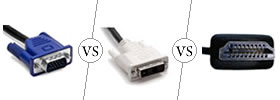Difference between VPN and Internet
Key difference: The Internet is the massive global system that connects computer networks around the world together. Internet is what we use to access web pages, send e-mails, listen to music or watch videos online. Virtual Private Network (VPN) allows a user to connect to a private network over the Internet. VPN sets up a virtual point-to-point connection between the private network and the user. This is done via the use of dedicated connections, encryption, or a combination of the two.
 The Internet is the massive global system that connects computer networks around the world together. Millions of private, public, academic, business, and government networks worldwide connect with each other over the internet to share massive amounts of information, resources and services. Internet is what we use to access web pages, send e-mails, listen to music or watch videos online. It hosts an extensive range of information, one that we generally take for granted today.
The Internet is the massive global system that connects computer networks around the world together. Millions of private, public, academic, business, and government networks worldwide connect with each other over the internet to share massive amounts of information, resources and services. Internet is what we use to access web pages, send e-mails, listen to music or watch videos online. It hosts an extensive range of information, one that we generally take for granted today.
The Internet uses the standard Internet protocol suite (TCP/IP) to allow us to connect to the net. It has numerous information resources and services, such as the web pages of the World Wide Web (WWW), games, videos, images, e-mail, social networking, etc. It has even spawned new services such as Voice over Internet Protocol (VoIP) and Internet Protocol Television (IPTV). The Internet is currently being used by billions of people worldwide.
The Internet carries information from all streams; traditional, such as newspaper, book and other print publishing; and modern such as blogging and web feeds. It also enabled new forms of human interactions through, instant messaging, e-mail, Internet forums, and social networking. It has gained so much popularity that in fact almost all forms of business communication as well as personal happens online through e-mail, instant messaging and social networking. With phone calls and text messaging (SMS) coming is second.
 Virtual Private Network (VPN) allows a user to connect to a private network over the Internet. VPN sets up a virtual point-to-point connection between the private network and the user. This is done via the use of dedicated connections, encryption, or a combination of the two. This allows a host computer to send and receive data across shared or public networks.
Virtual Private Network (VPN) allows a user to connect to a private network over the Internet. VPN sets up a virtual point-to-point connection between the private network and the user. This is done via the use of dedicated connections, encryption, or a combination of the two. This allows a host computer to send and receive data across shared or public networks.
This has its advantages, as one does not require to be physically present where the private network is located, i.e. a workplace. People whose jobs require them to travel would need to constantly keep in touch with their workplaces. They may even require certain documents or information which would traditionally be saved on the workplace network. VPN allows these people to access these documents and information from wherever they are at the moment. Offsite offices are nearly always connected through a VPN.
Essentially, VPN is like a WAN (wide area network) in which one can connect to a server or database without a physical connection. Of course, not everyone can connect to a VPN. It is highly encrypted to ensure security. Only an authorized person would be able to connect to the VPN.
Image Courtesy: ictinafrica.com, help.riseup.net









Add new comment